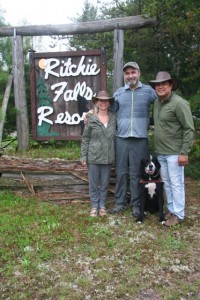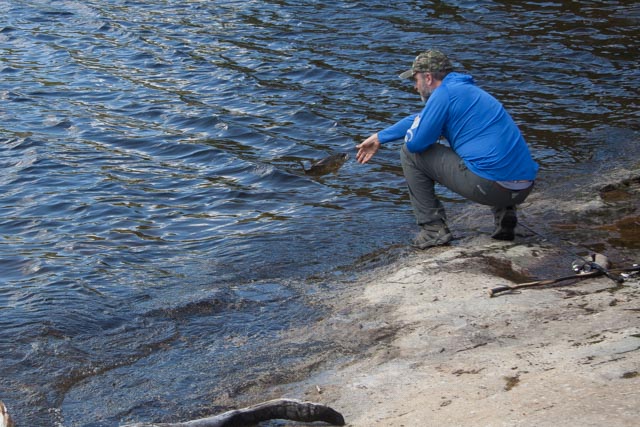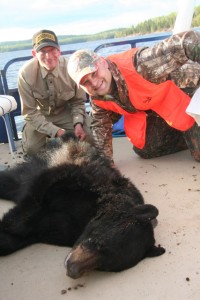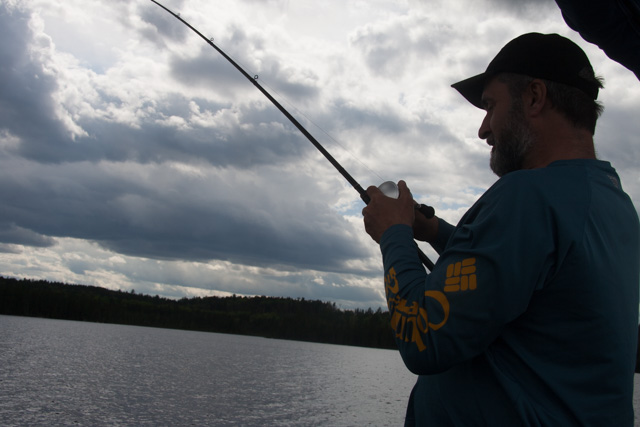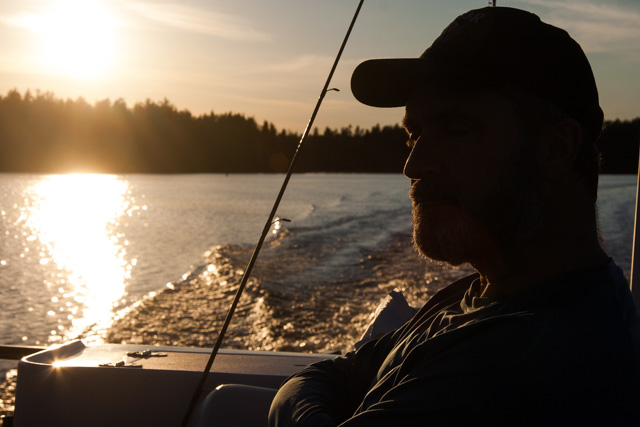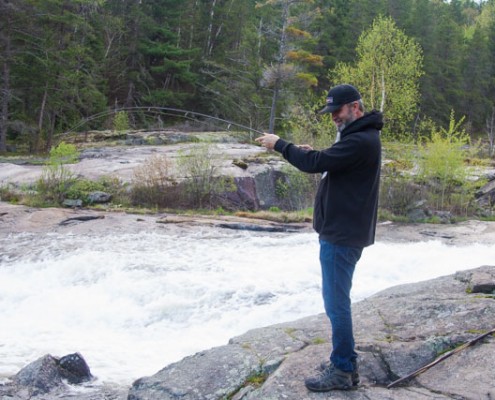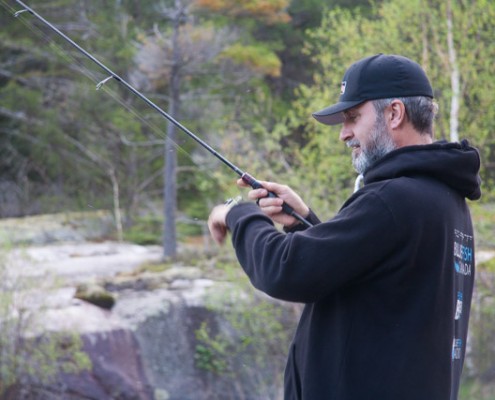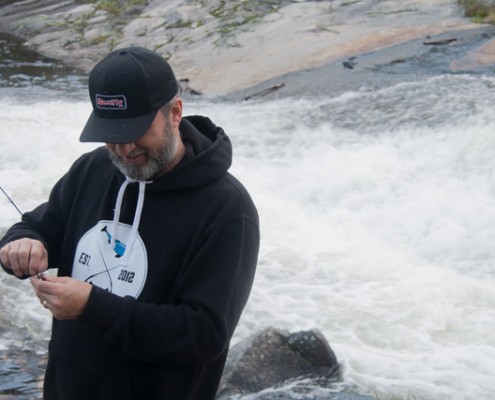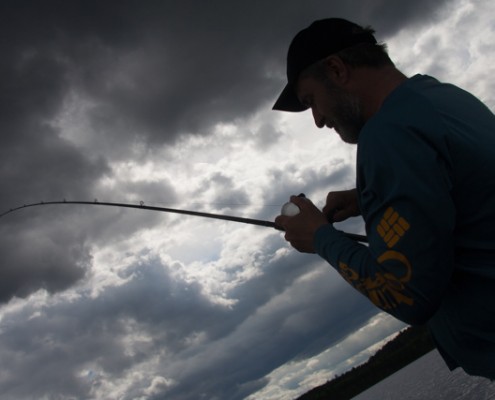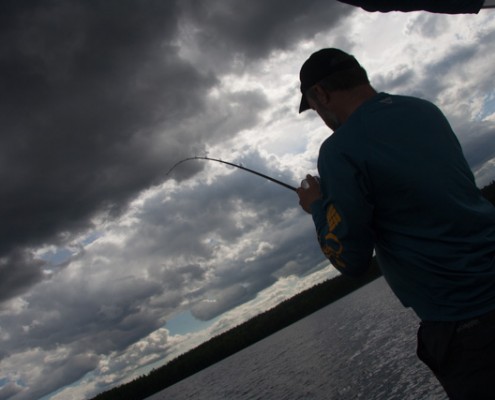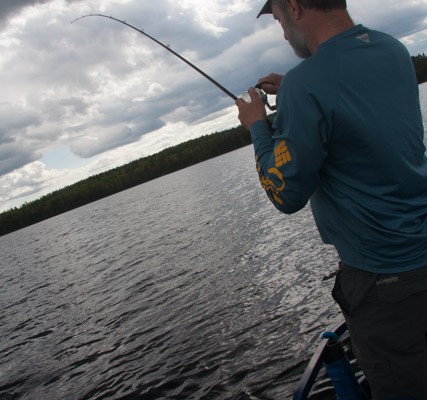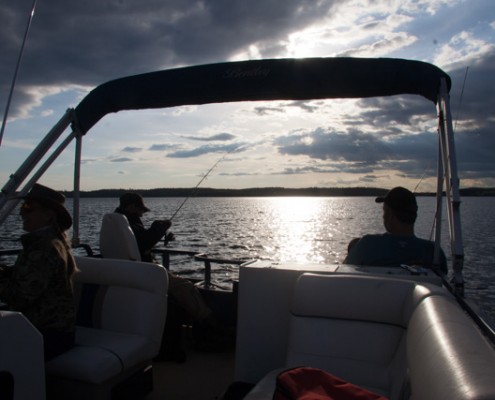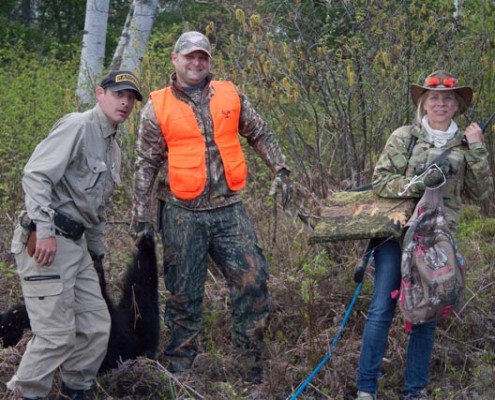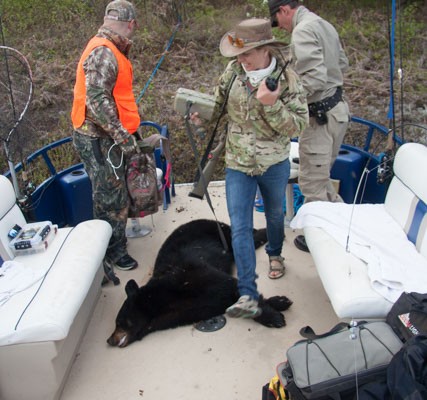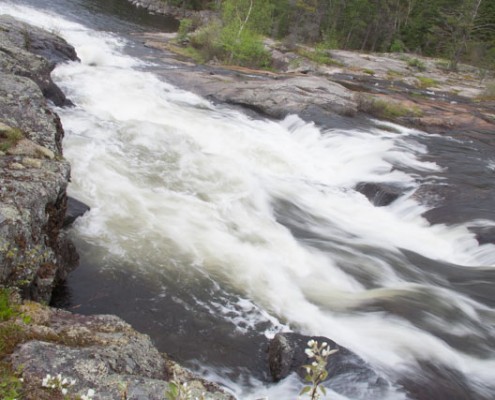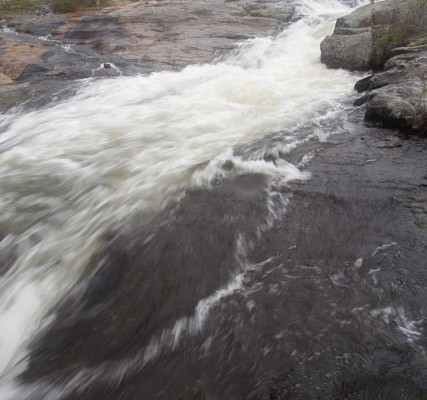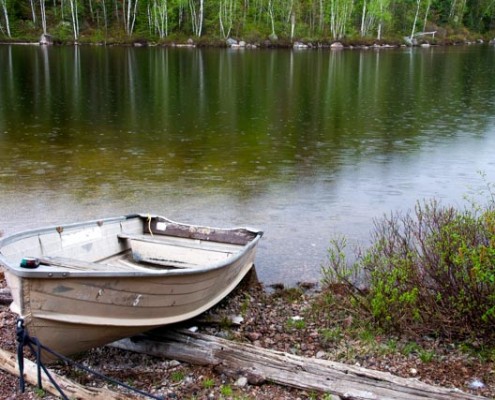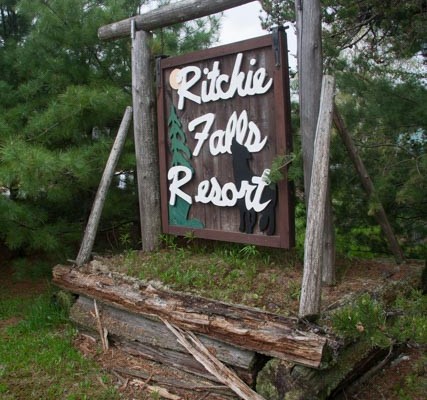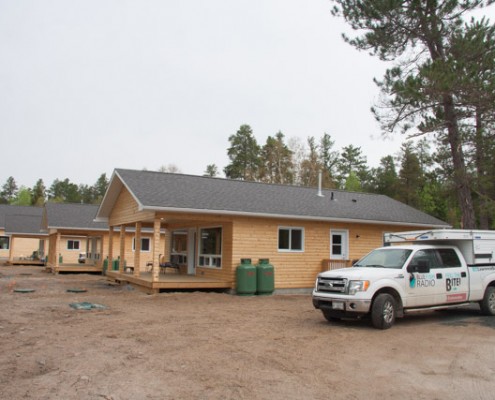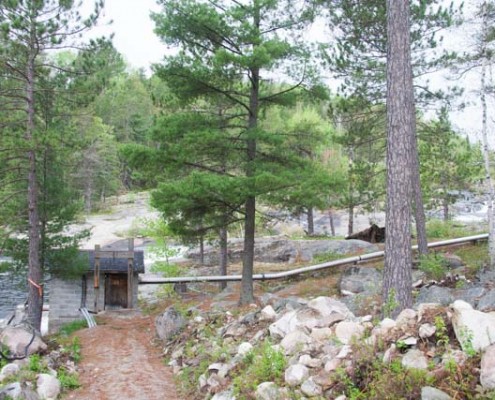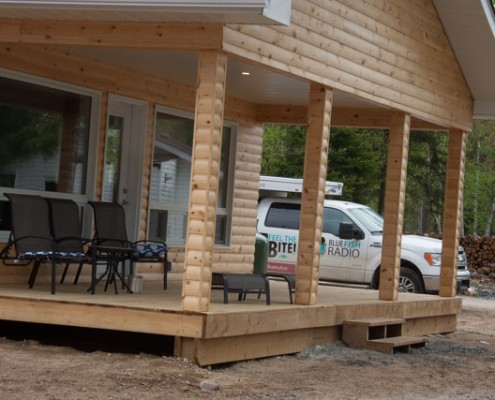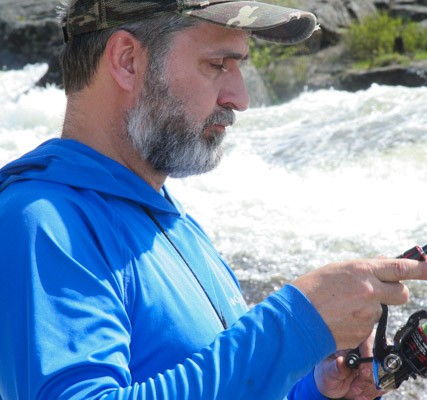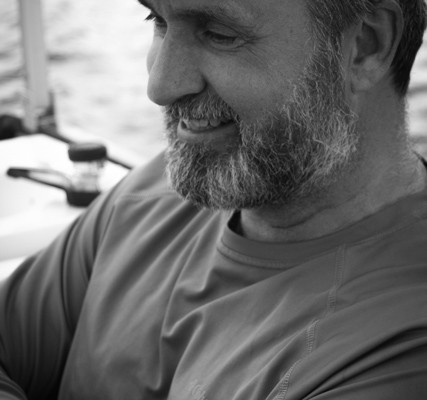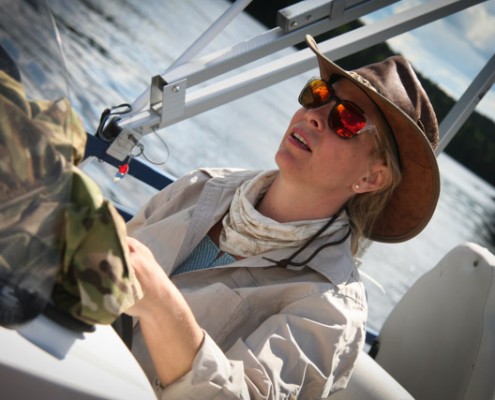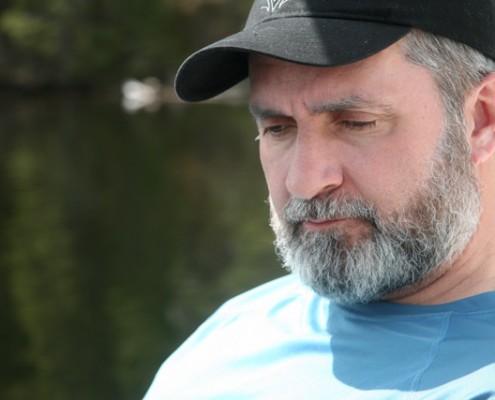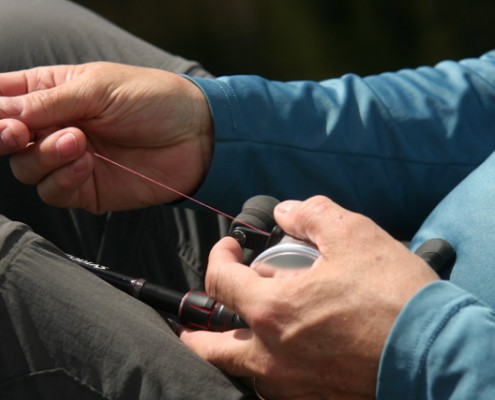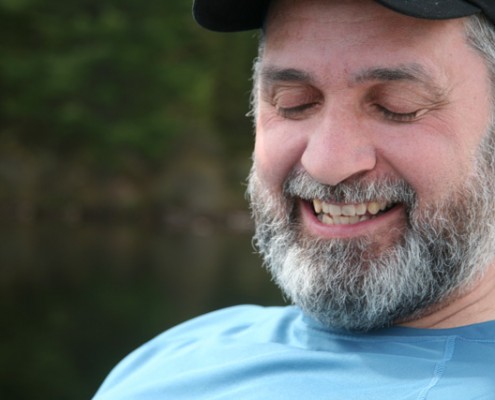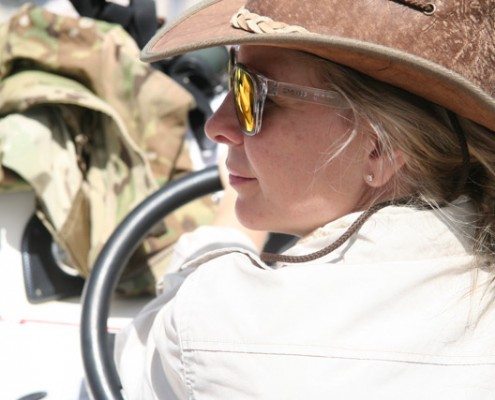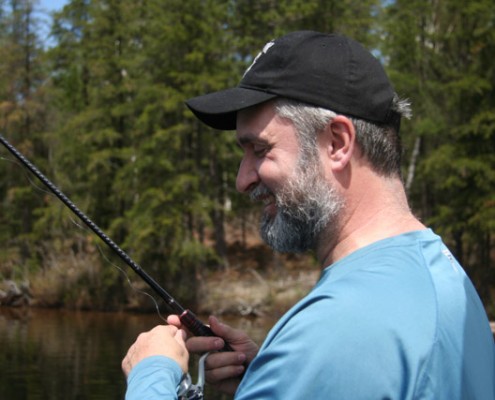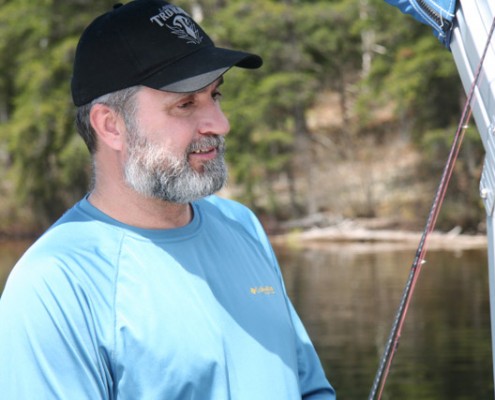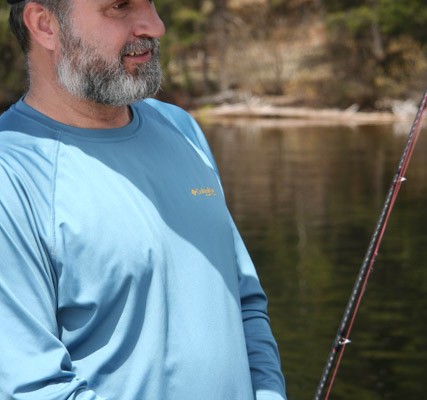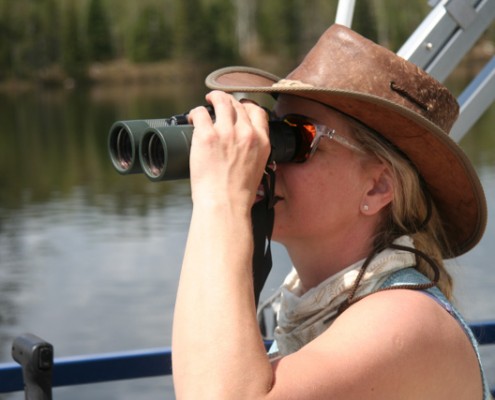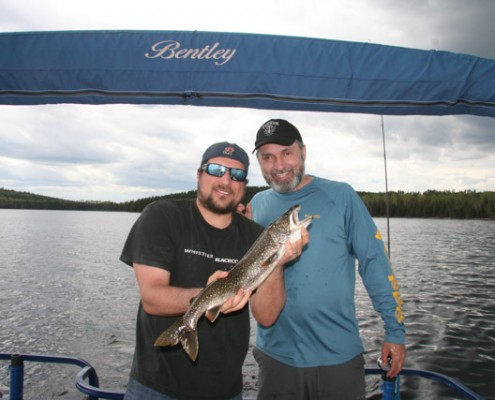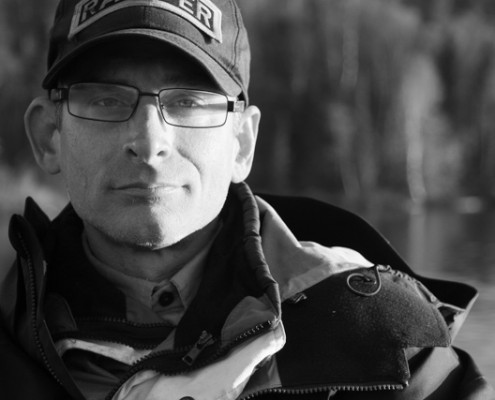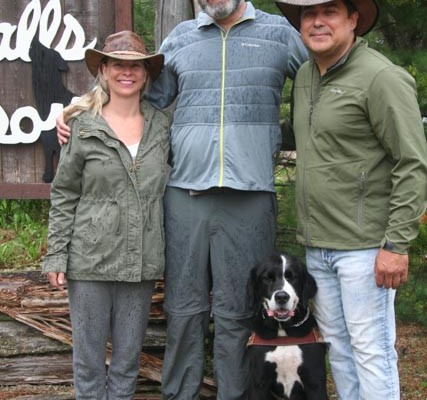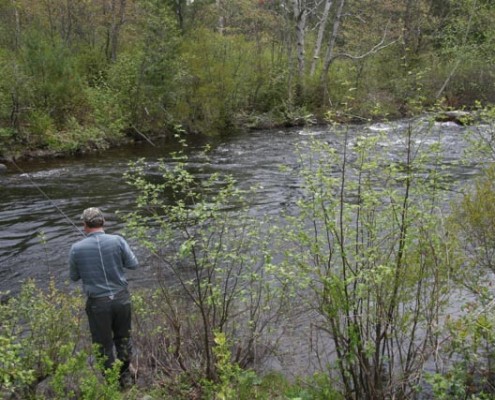A True Canadian Grand Slam
When I set off to visit Ritchie Falls Resort along with my guide dog Moby and friend and photographer Ian McLeod, we had no idea we were about to witness what could only be considered a classic Canadian Grand Slam. First though, a bit of history about the place and people.
In 2012 the Sagamok Anishnawbek First nation’s community located just West of Sudbury Ontario reached out with an offer to purchase Ritchie Falls from, at that point, its 5th set of owners since its construction in 1909. For the new owners, the purchase represented an opportunity to generate income and jobs for their community, and a platform to market their indigenous values and local knowledge. Before any of this could take place however, a sizeable financial investment was needed to implement their eco-indigenous tourism plans.
As is the case with many of Canada’s 20th-century fishing lodges, the baby boomers who make up their clientele are showing signs of aging. Approximately 40 per cent of men over 65 now report disabling issues, due largely to knees and backs. Unfortunately, it just takes one member of the “boy’s” annual fishing or hunting trip to beg off for the rest to take a pass. And, once a group boughs out of their annual trip, the chance of their ever re-booking is unlikely. Thus, owners of aging lodges like Ritchie Falls are having to re-invent their service offerings.
Mathew and Kyla Owl were selected by the new First Nations owners to lead the transformation process and operate Ritchie Falls, including marketing to both new and old clients. Keeping past clients coming back was crucial for generating cash flow and positive customer reviews. At the same time, the plan to transition the business away from its 100 per cent dependence on consumptive experiences (e.g. the harvest of fish and game), was seen as essential to their goal of operating Ritchie Falls year-round.
Upon my arrival at Ritchie Falls it became obvious my guide dog, Moby, was interested in a vacation himself. Off came the harness and leash, followed immediately with his adoption by the Resort’s pack of mastiffs, shepherds and hounds that circulate freely throughout the grounds as a deterrent to black bears.
Mat and Kyla were busy preparing to transport their Estonian, American and Canadian bear hunters to the bush for an afternoon of hunting from ground blinds. This gave me an opportunity to try out some of the fishing at the base of the falls. Within an hour I had caught and released Whitefish, a decent bag of Smallmouth Bass, and countless Brook Trout.
The new cabins at Ritchie Falls would make any cottage owner envious. Pine inside and out and furnished with actual La-Z-Boy chairs for kicking back. All the creature comforts tastefully decorated and accented with art and sculpture. A new green septic system that uses moss to filter and break down waste, and electric power from the hydro turbine recently installed below the falls, means guests lack for nothing.
The next morning, following a scrumptious breakfast prepared under Kyla’s direction, I was invited to spend the day fishing for lake trout with Kyla as guide. With Moby set free to enjoy his new pack mates, and an expansive picnic lunch and snacks filling a good-sized cooler, we set off aboard a 22-foot pontoon. Normally, I’m not a huge fan of fishing from pontoon boats given their tendency to be blown around due to their significant free-board; however, the windless conditions that day transformed our watercraft into the ideal trolling platform.
We flat-lined straight out the back in 55 degree water. First aboard was an amazing Smallmouth, followed by lake trout in the 6-8 lb range. Of course, the week prior saw two 40 lb Trout caught and released – isn’t that always the case…
In addition to access to a number of area lakes, Ritchie Falls is responsible for a 1,000 square KM “bear management zone”. It’s Mathew’s practice to focus on an area for three years before switching to another. He keeps approximately 100 baits in operation, and has chosen flavored popcorn as the bait of choice. Even though his spring popcorn bill amounts to well over $2,000, he says it’s worth every penny as it ensures area wolves are not inadvertently drawn to the baits.
While motoring our way back to the lodge I heard a rifle shot. Upon rounding the point Kyla adjusted course to pass by a bear bait where Matt had placed a young hunter earlier that day. Moments later, the hunter emerged out of the thick bush and yelled, “I just shot a bear”! Kyla responded, “is the bear dead”? It’s not unusual for wounded bears to rally and run off. Sure enough, the hunter took another look and reported back that, in-deed, the bear was still alive. Kyla then strongly suggested that he, “finish him off”. Easier said than done as the bear had dropped behind logs positioned earlier to funnel approaching bears into the shooting lane. The hunter could only see the top of the bear’s head, and had to circle back around to gain a clear shot, which is what he took not 60-seconds later. But, there’s more to the story.
Not satisfied with the lake trout we had selected for the evening meal, Kyla volunteered our services to transport the bear. She ran the bow of the pontoon boat on to shore and scrambled into the forest followed closely by her helper. Five minutes later the hunter aided by Kyla’s assistant hauled the still-warm bear on to the bow of the boat.
We travelled about ten minutes to the hunter’s outpost camp where he was staying with his mother. His father had died several years before, but with assistance from the folks at Ritchie Falls, the family was continuing the tradition. This was the first bear the young hunter had shot since his father’s passing.
The mother’s pride in her son was more than evident. Kyla new they had no refrigeration, and offered to bring the bear back to camp for Mathew to skin, quarter and refrigerate. Yes in-deed, I was to return to the lodge with a true classic Canadian grand slam aboard the boat – lake trout and black bear.
Over dinner that evening it was obvious the resort’s guests were enjoying their stay. This may have had something to do with the lake trout prepared three ways accompanied by several salads and baby potatoes, followed with an apple crumble and ice-cream for dessert. Upon departing the main lodge around 11: that evening I came across Mathew hard at work skinning out and preparing the bear. Early the next morning I found Mathew up and meeting with investors – I’m not sure if this guy ever sleeps.
Kyla herself seems to effortlessly switch between managing kitchen and cleaning staff, and guiding guests on the water and in the forest. She makes no secret though that her heart is with guiding and considers herself a bow huntress first-and-foremost.
My stay at Ritchie Falls transported me back in time twice. First, as a young boy fishing creeks for Speckled Trout on the outskirts of my home town, and second, my 3-years of bear hunting in the Huntsville area. Even though I had lost sufficient central vision by age eight and was registered as blind, my remaining peripheral vision at that time was sufficient for me to ride a bike and earn a hunting license. I preferred spin-fishing over fly-fishing, and I never shot a lot of game. I did become proficient at using ultralight fishing tackle, and enjoyed handling the hounds during hunts. I also excelled at hunting bears – their size and contrast make them hard to miss. Interesting to note, black bear are also considered technically blind, having no fine or colour vision, and capable of seeing only shapes, shadows and movement. Like me, they depend on their hearing, and their senses of taste, smell and touch. I always figured we were pretty evenly matched. Even though I had the gun, they could run like the wind when spooked, and could disappear into the forest in a heartbeat.
The 75 km well maintained logging road connecting Ritchie Falls to the Trans-Canada highway offers plenty of examples of sustainable logging practices. Small clear-cuts were followed by zones of re-plantings, interspersed with alternating stands of young and mature trees. Modern forestry practices simulate how nature generates meadows using fires started by lightning strikes, a continual renewal process important to the growth of forage such as berries and shoots.
Rotating hunting zones and selective harvesting helps ensure wildlife is sustainably harvested by allowing for renewal. It’s a management approach that depends on science, observation and local knowledge, as well as applying values such as taking responsibility and demonstrating respect.
Community sustainability and self-sufficiency are goals of the Sagamok Anishnawbek First Nations people that live in the nearby native reserve. Barring catastrophic destruction brought on by climate change, invasive species or large-scale industrial development, the Ritchie Falls resort should serve the economic needs of future generations of the Sagamok Anishnawbek People well. Operating year-round for the first time, the nearby community of Massy is also benefiting from reconstruction work at the resort and the increased tourism traffic that’s already evident.
Personally, I can’t wait to go back to Ritchie Falls to see if I can catch myself one of those 40-lb Lakers. I’m also looking forward to experiencing more of the indigenous services Mat and Kyla are just now bringing on-line. As for bears, my now complete lack of sight may have put an end to hunting alone in the forest, it’s nice to know I can still appreciate vicariously another hunter’s thrill of harvesting this amazing renewable and plentiful resource.



